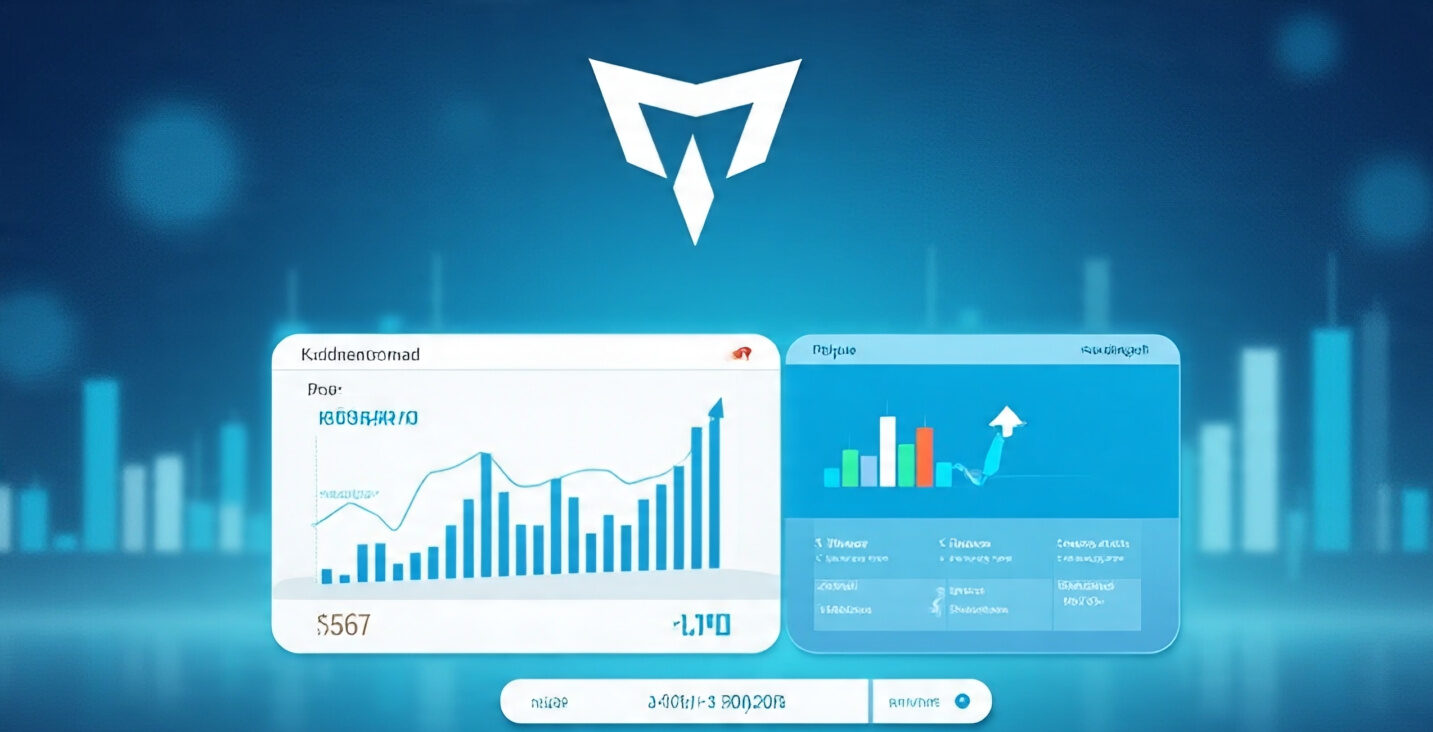Starting your cryptocurrency journey can feel overwhelming, especially when choosing the best bitcoin exchange for beginners. With hundreds of platforms available, finding a secure, user-friendly, and affordable exchange is crucial for your success in the crypto world. Whether you’re looking to make your first Bitcoin purchase or build a long-term investment portfolio, selecting the right exchange will determine your overall experience.
The cryptocurrency market has matured significantly, making it easier than ever for newcomers to enter safely. However, not all exchanges are created equal, and beginners need platforms that prioritize simplicity, security, and educational resources. In this comprehensive guide, we’ll explore the top exchanges specifically designed for new crypto investors, comparing their features, fees, security measures, and user experience to help you make an informed decision.
What Makes the Best Bitcoin Exchange for Beginners?
When evaluating crypto platforms, several key factors distinguish the best bitcoin exchange for beginners from advanced trading platforms. Understanding these criteria will help you identify which exchange aligns with your needs and experience level.
User-Friendly Interface and Design
The most important characteristic of a beginner-friendly exchange is its interface. New users need platforms with intuitive navigation, clear buying processes, and minimal technical jargon. The best exchanges for beginners feature clean designs with straightforward menus, prominent buy/sell buttons, and step-by-step guidance throughout the purchasing process.
A well-designed platform should allow you to complete your first Bitcoin purchase within minutes of account creation. Look for exchanges that use simple language, provide visual guides, and offer mobile apps that mirror the desktop experience.
Robust Security Measures
Security should never be compromised, especially for beginners who may not understand all the risks involved in cryptocurrency trading. Top exchanges implement multiple security layers including two-factor authentication (2FA), cold storage for customer funds, insurance coverage, and regular security audits.
The most reputable platforms store the majority of customer funds in offline cold storage, protecting them from potential hacks. Additionally, regulatory compliance and proper licensing demonstrate an exchange’s commitment to security and legal operations.

Competitive Fee Structure
While beginners shouldn’t choose exchanges based solely on fees, understanding cost structures is essential. The best bitcoin exchanges for newcomers offer transparent pricing without hidden charges. Look for platforms that clearly display trading fees, deposit costs, withdrawal charges, and any additional service fees.
Many beginner-friendly exchanges offer reduced fees for the first few transactions or provide fee-free periods to attract new users. However, extremely low fees sometimes indicate compromised security or limited customer support.
Educational Resources and Support
Learning resources significantly impact a beginner’s success in cryptocurrency trading. The best exchanges provide comprehensive educational materials including tutorials, market analysis, trading guides, and frequently asked questions sections.
Quality customer support is equally important, especially when issues arise with deposits, withdrawals, or account verification. Look for exchanges offering multiple contact methods, including live chat, email support, and phone assistance during extended hours.
Top 7 Best Bitcoin Exchanges for Beginners in 2025
After extensive research and analysis, here are the leading platforms that consistently rank as the best bitcoin exchange for beginners:
1. Coinbase: The Gold Standard for Crypto Beginners
Coinbase has established itself as the go-to platform for cryptocurrency newcomers, offering an unmatched combination of simplicity, security, and regulatory compliance. Based in the United States and publicly traded, Coinbase provides the trust factor that many beginners seek.
Key Features:
- Extremely user-friendly interface designed for beginners
- Strong regulatory compliance and insurance coverage
- Educational program offering free cryptocurrency for learning
- Mobile app with identical functionality to desktop platform
- Instant buying with debit cards and bank transfers
Pros:
- Excellent reputation and regulatory standing
- Comprehensive educational resources
- Insurance coverage for digital assets
- Simple one-click buying process
- Strong customer support
Cons:
- Higher fees compared to advanced platforms
- Limited advanced trading features
- Geographic restrictions in some countries
Fee Structure: Trading fees range from 0.5% to 4.5% depending on payment method and transaction size. While higher than some competitors, the premium reflects the platform’s security and ease of use.
2. Kraken: Security-First Approach
Kraken combines robust security measures with beginner-friendly features, making it an excellent choice for security-conscious newcomers. The platform has never been hacked in its over decade-long operation, establishing it as one of the most trusted names in cryptocurrency.
Key Features:
- Industry-leading security protocols
- Low trading fees starting at 0.16%
- Advanced and simple trading interfaces
- Extensive cryptocurrency selection
- 24/7 customer support
Pros:
- Exceptional security track record
- Competitive fee structure
- Professional-grade features available when ready
- Strong regulatory compliance
- Comprehensive API for advanced users
Cons:
- Interface can be overwhelming for complete beginners
- Limited payment options in some regions
- Account verification process can be lengthy
3. Binance.US: Feature-Rich Platform
As the U.S. version of the world’s largest cryptocurrency exchange, Binance.US offers extensive features while maintaining beginner accessibility. The platform provides access to hundreds of cryptocurrencies beyond Bitcoin.
Key Features:
- Extensive cryptocurrency selection
- Low trading fees (0.1% standard)
- Both basic and advanced trading views
- Staking and earning opportunities
- Mobile app functionality
Pros:
- Very competitive fees
- Large selection of cryptocurrencies
- Advanced features for growth
- Strong liquidity across trading pairs
- Regular promotions and fee discounts
Cons:
- Can be overwhelming for absolute beginners
- Limited customer support responsiveness
- Complex fee structure with multiple variables
- Regulatory challenges in some states
4. Gemini: Regulation and Trust Focus
Founded by the Winklevoss twins, Gemini emphasizes regulatory compliance and institutional-grade security while maintaining accessibility for retail investors. The exchange is particularly strong in the United States market.
Key Features:
- New York state-regulated exchange
- Insurance coverage for digital assets
- ActiveTrader platform for lower fees
- Gemini Earn program for yield generation
- Clean, intuitive interface
Pros:
- Strong regulatory standing
- Excellent security measures
- Free withdrawals (up to limits)
- Educational resources available
- Professional customer support
Cons:
- Higher fees on basic interface
- Limited cryptocurrency selection
- Geographic restrictions
- Slower innovation compared to competitors
5. Cash App: Simplest Bitcoin Buying Experience
Cash App provides the most straightforward Bitcoin purchasing experience, integrating cryptocurrency buying into its popular payment app. This familiarity makes it ideal for users already comfortable with the Cash App ecosystem.
Key Features:
- Integration with existing Cash App account
- Instant Bitcoin purchases
- Automatic investing options
- Simple portfolio tracking
- Direct deposit capabilities
Pros:
- Extremely simple to use
- No additional account setup required
- Instant transactions
- Low fees for Bitcoin purchases
- Familiar interface for existing users
Cons:
- Limited to Bitcoin only
- No advanced trading features
- Higher fees for instant purchases
- Limited educational resources
6. eToro: Social Trading Pioneer
eToro combines traditional cryptocurrency trading with social features, allowing beginners to learn from experienced traders through copy trading and social feeds. This unique approach appeals to users who prefer learning through community interaction.
Key Features:
- Social trading and copy trading features
- User-friendly interface
- Commission-free stock trading
- Educational webinars and content
- Multi-asset platform
Pros:
- Learn from other traders
- No trading commissions on stocks
- Comprehensive educational program
- Regulated in multiple jurisdictions
- Mobile app available
Cons:
- Limited cryptocurrency selection
- Withdrawal fees apply
- Copy trading carries additional risks
- Complex fee structure
7. Robinhood: Commission-Free Trading
Robinhood brought commission-free trading to mainstream retail investors and extends this model to cryptocurrency trading. The platform appeals to users already familiar with stock trading.
Key Features:
- Commission-free cryptocurrency trading
- Integration with stock portfolio
- Simple mobile-first design
- Instant deposits available
- Price alerts and notifications
Pros:
- No trading commissions
- Familiar interface for stock traders
- Instant deposits up to limits
- Clean mobile experience
- Educational content available
Cons:
- Cannot withdraw cryptocurrency
- Limited cryptocurrency selection
- No advanced trading features
- Customer service limitations
How to Choose Your First Bitcoin Exchange
Selecting the best bitcoin exchange for beginners requires evaluating your specific needs, preferences, and comfort level with technology. Consider these factors when making your decision:
Assess Your Technical Comfort Level
Honestly evaluate your comfort with technology and financial platforms. If you prefer maximum simplicity, platforms like Cash App or Coinbase offer the most straightforward experiences. Users comfortable with slightly more complexity might benefit from Kraken or Binance.US’s additional features.
Determine Your Investment Goals
Consider whether you plan to buy and hold Bitcoin long-term or actively trade multiple cryptocurrencies. Long-term investors might prioritize security and low fees, while active traders need platforms with advanced charting and multiple trading pairs.
Evaluate Security Requirements
All recommended exchanges provide adequate security for beginners, but some offer additional features like insurance coverage or advanced security options. If security is your primary concern, prioritize exchanges with perfect security track records and comprehensive insurance policies.
Consider Geographic Restrictions
Not all exchanges operate in every location. Verify that your chosen platform serves your country and state before beginning the registration process. Some exchanges have limited functionality in certain regions due to regulatory requirements.
Review Fee Structures
While fees shouldn’t be the only consideration, understanding costs helps you make informed decisions. Calculate potential fees based on your planned investment amounts and trading frequency to identify the most cost-effective option.
Step-by-Step Guide: Getting Started with Your First Exchange
Once you’ve selected the best bitcoin exchange for beginners for your needs, follow these steps to begin your cryptocurrency journey safely:
Account Registration and Verification
Start by visiting your chosen exchange’s official website and creating an account. Provide accurate personal information, as this will be verified during the Know Your Customer (KYC) process. Most exchanges require identity verification before allowing cryptocurrency purchases.
Prepare the following documents for verification:
- Government-issued photo ID (driver’s license or passport)
- Proof of address (utility bill or bank statement)
- Social Security number (for U.S. residents)
Secure Your Account
Immediately enable two-factor authentication (2FA) using an authenticator app like Google Authenticator or Authy. This adds an essential security layer to your account. Create a strong, unique password and consider using a password manager for optimal security.
Fund Your Account
Link a payment method such as a bank account, debit card, or credit card. Bank transfers typically offer lower fees but take longer to process, while card payments provide instant access but incur higher fees. Start with smaller amounts until you’re comfortable with the platform.
Make Your First Purchase
Navigate to the buying section and select Bitcoin. Enter the amount you want to purchase (you can buy fractional amounts), review the transaction details including fees, and confirm your purchase. Most exchanges provide immediate confirmation of successful transactions.
Secure Your Bitcoin
While exchanges provide basic security, consider transferring larger amounts to a personal wallet for enhanced security. Hardware wallets like Ledger or Trezor offer the highest security level for long-term storage.
Common Mistakes to Avoid as a Bitcoin Beginner
Learning from others’ mistakes can save you time, money, and frustration. Here are the most common errors new Bitcoin investors make when choosing and using exchanges:
Choosing Based Solely on Low Fees
While fees are important, prioritizing the lowest fees over security, reliability, and user experience often leads to problems. Slightly higher fees for better service and security typically provide better value, especially for beginners.
Skipping Security Setup
Failing to enable two-factor authentication and using weak passwords are common security oversights. These simple steps significantly improve account security and should be completed immediately after registration.
Investing More Than You Can Afford
Cryptocurrency investments carry inherent risks, and beginners sometimes invest emergency funds or borrowed money. Only invest amounts you can afford to lose completely without impacting your financial stability.
Falling for Scams and Fake Exchanges
Scammers often create fake exchanges or impersonate legitimate platforms. Always verify website URLs, use official mobile apps from app stores, and never respond to unsolicited investment offers or “guaranteed return” schemes.
Not Understanding Withdrawal Processes
Some beginners don’t realize they can withdraw their cryptocurrency to personal wallets, while others attempt withdrawals without understanding network fees or processing times. Familiarize yourself with your exchange’s withdrawal policies and procedures.
Security Best Practices for Exchange Users
Protecting your cryptocurrency investments requires following security best practices from day one. Implement these strategies to minimize risks:
Enable All Available Security Features
Activate two-factor authentication, email notifications for account activity, and any additional security options your exchange offers. Many platforms provide whitelist addresses for withdrawals and time-based withdrawal restrictions.
Use Strong, Unique Passwords
Create complex passwords using a combination of letters, numbers, and symbols. Never reuse exchange passwords on other websites. Password managers help generate and store secure passwords safely.
Keep Software Updated
Regularly update your mobile apps, web browsers, and any security software. Outdated software may contain vulnerabilities that attackers can exploit.
Monitor Account Activity
Regularly review your account activity and transaction history. Set up account notifications to receive alerts about logins, trades, and withdrawals. Report any suspicious activity immediately.
Consider Cold Storage for Large Holdings
While exchanges provide convenience, storing large cryptocurrency amounts on exchanges indefinitely increases risk. Consider transferring significant holdings to hardware wallets or other cold storage solutions.
Understanding Bitcoin Trading Fees and Costs
Fee structures significantly impact your investment returns, especially when making frequent transactions. Understanding different fee types helps you optimize your trading strategy:
Trading Fees
Most exchanges charge percentage-based fees on each trade, typically ranging from 0.1% to 1.5% per transaction. Some platforms offer reduced fees for higher trading volumes or native token holders.
Deposit and Withdrawal Fees
Bank transfers often carry minimal fees, while credit card deposits may incur 3-5% charges. Cryptocurrency withdrawal fees vary based on network congestion and the specific cryptocurrency being withdrawn.
Spread and Market Impact
The difference between buy and sell prices (spread) represents an implicit cost. Exchanges with higher liquidity typically offer tighter spreads, reducing your effective trading costs.
Hidden Fees and Charges
Some platforms impose account maintenance fees, inactivity charges, or currency conversion costs. Review all fee schedules before committing to an exchange.

The Future of Bitcoin Exchanges for Beginners
The cryptocurrency exchange landscape continues evolving, with several trends shaping the future of beginner-friendly platforms:
Improved User Experience
Exchanges are investing heavily in user interface improvements, streamlined onboarding processes, and educational resources. Expect continued simplification of complex processes and better mobile experiences.
Enhanced Security Measures
Advanced security features like biometric authentication, AI-powered fraud detection, and improved cold storage solutions are becoming standard across reputable exchanges.
Regulatory Clarity
Increasing regulatory clarity in major markets is improving exchange operations, consumer protections, and institutional adoption. This trend benefits beginners through improved platform stability and security.
Integration with Traditional Finance
Exchanges are integrating more closely with traditional financial services, offering features like cryptocurrency debit cards, savings accounts, and investment products that bridge traditional and digital finance.
Conclusion
Choosing the best bitcoin exchange for beginners is the first crucial step in your cryptocurrency investment journey. While the options may seem overwhelming initially, focusing on security, ease of use, and educational resources will guide you toward the right platform for your needs.
Remember that your first exchange doesn’t have to be your last. Many successful cryptocurrency investors start with beginner-friendly platforms like Coinbase or Kraken, then gradually explore more advanced options as their knowledge and confidence grow. The key is to start with a reputable, secure platform that makes the learning process as smooth as possible.
Take time to research each platform, read user reviews, and consider starting with small investments to test different exchanges. Your choice of the best bitcoin exchange for beginners should align with your technical comfort level, investment goals, and security requirements.
Ready to begin your Bitcoin investment journey? Start by creating an account with one of the recommended exchanges today, and take your first step into the exciting world of cryptocurrency. Remember to invest only what you can afford to lose, enable all security features, and continue learning about this rapidly evolving market.


